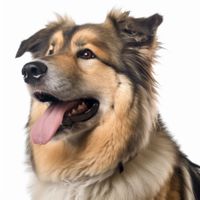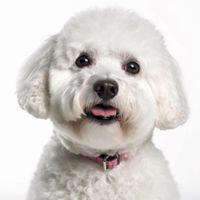Alaskan Malamute - vs - Bichon Frise - vs - Portuguese Water Dog
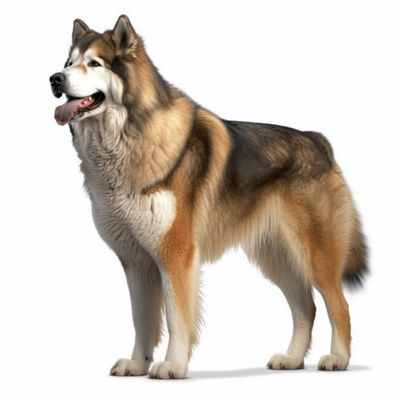
Alaskan Malamutes are large dogs, weighing 75-85 lbs, with a height of 23-25 inches.
Alaskan Malamutes have a medium energy level and require regular exercise and mental stimulation.
Alaskan Malamutes need a significant amount of exercise, including daily walks, runs, and opportunities for play and exploration.
Alaskan Malamutes can be challenging to train due to their independent nature. Consistent, positive reinforcement and patience are essential.
Alaskan Malamutes are highly intelligent dogs and excel in various dog sports and activities, especially those involving endurance and strength.
Alaskan Malamutes can adapt to different living situations, but they need plenty of space and exercise to thrive.
Alaskan Malamutes are good with children when properly socialized and supervised.
Alaskan Malamutes can get along with other pets, but their high prey drive may require caution around smaller animals.
Alaskan Malamutes are well-suited for cold climates, thanks to their thick, double-layered coats.
Alaskan Malamutes are not well-suited for hot climates and need to be monitored for signs of overheating during exercise.
Alaskan Malamutes have thick double coats that shed heavily, especially during seasonal shedding periods.
Alaskan Malamutes require frequent grooming, including regular brushing and occasional bathing to keep their coats clean and healthy.
Alaskan Malamutes bark occasionally, usually only when necessary or provoked.
Alaskan Malamutes may experience some health issues and require additional care and attention, such as regular veterinary checkups, preventative care, and potential medication or treatments.
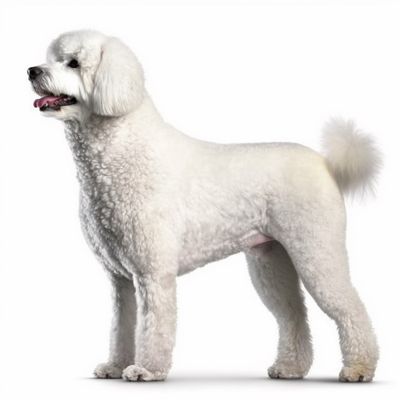
Bichon Frises are small dogs, weighing 10-20 lbs and standing 9.5-11.5 inches tall.
Bichons have a moderate energy level, enjoying playtime and cuddles in equal measure.
Daily exercise, like walks or playtime, keeps Bichons happy and helps prevent boredom.
Bichons are intelligent and trainable, but may require patience and consistency.
Bichons are smart dogs that enjoy learning new commands, tricks, and problem-solving.
Bichons adapt well to various environments, from apartments to larger homes.
Bichons are gentle, playful, and affectionate, making them excellent companions for children.
Bichons generally get along well with other pets, including dogs and cats, when socialized properly.
Bichons can tolerate cold weather, but it's important to provide proper shelter and warmth.
Bichons can handle warm climates, but ensure they have access to shade, water, and avoid excessive exercise.
Bichons have a low-shedding coat, making them a good option for people with allergies.
Bichons require regular grooming to maintain their curly coats, including brushing, trimming, and bathing.
Bichon Frises have average bark tendencies and may bark for various reasons, such as alerting their owners or during playtime.
Bichon Frises are generally healthy dogs but may still require regular veterinary checkups and preventative care.
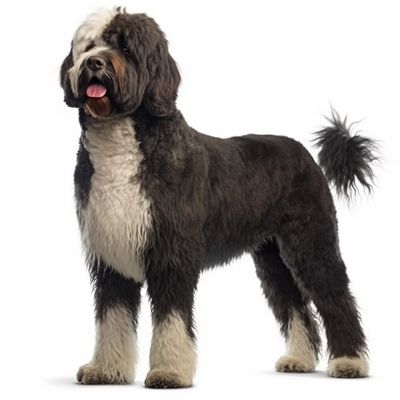
Portuguese Water Dogs are medium-sized dogs, weighing 35-60 lbs, with a height of 17-23 inches.
Portuguese Water Dogs have a high energy level, and they enjoy participating in various activities and sports.
Portuguese Water Dogs need regular exercise, including daily walks, swimming, and opportunities to participate in dog sports.
Portuguese Water Dogs are intelligent and eager to please, making them relatively easy to train with consistent, positive reinforcement.
Portuguese Water Dogs are highly intelligent dogs and can excel in various dog sports and activities, especially those involving water.
Portuguese Water Dogs can adapt well to different living situations, including apartments and larger homes, as long as their exercise needs are met.
Portuguese Water Dogs can be good with children, being playful and affectionate. However, supervision and proper handling are important.
Portuguese Water Dogs can get along well with other pets, especially when raised together.
Portuguese Water Dogs can tolerate colder temperatures, thanks to their thick, water-resistant coats.
Portuguese Water Dogs can tolerate hot climates but need to be monitored for signs of overheating during exercise.
Portuguese Water Dogs have low-shedding coats, making grooming relatively easy.
Portuguese Water Dogs require regular grooming, including brushing and trimming to keep their coats clean and healthy.
Portuguese Water Dogs are generally healthy, but regular veterinary checkups and preventative care are still necessary.

